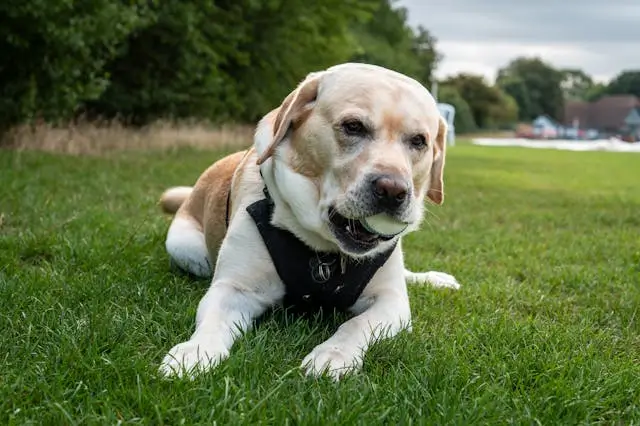Not Sure What’s Safe for Your Pet?
We get it. Choosing the wrong product could mean an expensive vet trip—or worse. Let’s keep it safe, simple, and 100% pet-friendly.
Call Now: 239-933-5088Is Your Yard Safe for Your Pets?
Tampa’s sunshine and warm weather make it the perfect place to enjoy time outdoors with your pets. But pests like fleas, ticks, chinch bugs, and fire ants? Not so much.
Worse, some traditional pest control products can harm your pets if they’re not applied or selected properly.
That’s where pet safe lawn pest control in Tampa comes in. You can have a lush, pest-free yard without putting your dog or cat at risk.
We will take a professional breakdown of how this works:
- The most common lawn pests in Tampa
- Why “pet safe” matters
- What to look for in a pest control service
- DIY vs. professional options
- How to maintain a safe, bug-free yard
Let’s get into it.
Common Lawn Pests in Tampa That Can Harm Pets
Tampa lawns are known for St. Augustine grass, warm temps, and high humidity. But those same conditions also attract pests. Here are a few to watch out for:
1. Fleas & Ticks
These are the most obvious threats to your pets. Fleas can infest your yard and your home, while ticks carry nasty diseases like Lyme or ehrlichiosis.
2. Fire Ants
One fire ant mound can turn your dog’s playtime into a vet visit. Their bites are painful and can cause swelling or allergic reactions in pets.
3. Chinch Bugs
These destroy your lawn and attract other pests looking for dead patches of grass. They’re small, fast, and tough to notice until it’s too late.
4. Grubs
They might not bite your dog, but grubs attract raccoons, armadillos, and skunks—none of which you want digging up your lawn at 2 AM.
Why “Pet Safe” Matters
The term pet safe lawn pest control isn’t just a buzzword. It’s a necessity for Tampa homeowners with dogs, cats, or any curious animal that licks, rolls, or chews everything in sight.
Many conventional pest control products use harsh chemicals that can linger in your grass and soil. If your pet walks through a treated area and licks their paws—well, you get the picture.
That’s why we only recommend low-toxicity, pet-friendly, or organic pest control methods whenever possible.

What to Look for in a Pet Safe Lawn Pest Control Service
Not all pest control companies are created equal. If you’re looking for pet safe lawn pest control in Tampa, here’s what to ask before hiring anyone:
Do they use natural or organic treatments?
Look for providers who focus on essential oils, diatomaceous earth, beneficial nematodes, or other naturally derived products.
Are their products EPA-approved for residential use?
Even natural products should be backed by science. EPA approval means the product has passed safety standards for pets and people.
Do they guarantee a dry time before allowing pets outside?
Some products are only safe after they dry completely. A good company will advise you on when it’s safe for your pets to return to the lawn.
Do they offer custom lawn assessments?
Your lawn isn’t like everyone else’s. A quality provider will inspect your yard and tailor their approach to fit your situation—not push a one-size-fits-all plan.
DIY vs. Professional Pet Safe Lawn Pest Control
You might be wondering: “Can I just treat my lawn myself?”
Yes—but there are trade-offs.
DIY Pros:
- Cheaper up front
- Full control over what goes in your yard
- Lots of pet-safe options at local stores
DIY Cons:
- You might miss hidden infestations
- Takes time and research to do safely
- Results can be hit or miss
Professional Pros:
- Faster, more effective treatments
- Safer application methods
- Local expertise on seasonal pest cycles
Professional Cons:
- More expensive
- Not all companies use pet-safe methods (do your homework!)
If you’re short on time or just don’t want to risk it, hiring a trusted local expert is usually worth it.
Best Practices to Keep Your Lawn Pet-Safe and Pest-Free
Whether you go DIY or hire help, here are some simple habits to reduce pest pressure and protect your pets:
Keep it Clean
Pick up pet waste regularly. It attracts pests like flies and even worms.
Mow Smart
Keep your grass trimmed, but don’t scalp it. Taller grass harbors pests; shorter grass can stress your lawn.
Water in the Morning
Watering early helps your lawn dry faster, discouraging fungus and pests. Avoid over watering—it attracts grubs and mosquitoes.
Use Safe Spot Treatments
For trouble areas like fire ant mounds, use pet-safe granular treatments or natural sprays like orange oil or cedar wood.
Invite Beneficial Insects
Ladybugs, praying mantises, and nematodes are nature’s pest control. They target bad bugs without harming pets.
Tampa-Specific Tips: Timing Is Everything
In Tampa, pest season never really stops. But spring through fall is when the worst infestations happen.
Schedule treatments:
- Spring: Start early to prevent fleas, ticks, and ants.
- Summer: Maintain with spot treatments or monthly applications.
- Fall: Apply preventative grub and fire ant control before winter.
Avoid mid-day applications in the summer heat—treat early morning or late evening for best results and less product evaporation.
Peace of Mind for Tampa Pet Owners
If you love your pets like family, don’t risk exposing them to toxic lawn chemicals. The good news is, you don’t have to.
With pet safe lawn pest control in Tampa, you get the best of both worlds: a green, pest-free lawn and a safe environment for your furry friends.
Just be smart about what you use, how you apply it, and who you hire.
Your Pets Deserve a Yard That’s Safe
Fleas, fire ants, and lawn chemicals don’t belong in your pet’s play space. Let’s fix that—without putting your dog or cat at risk.
We’re local. We’re fast. We only use products we’d trust around our own pets.
Tap to Call: 239-933-5088